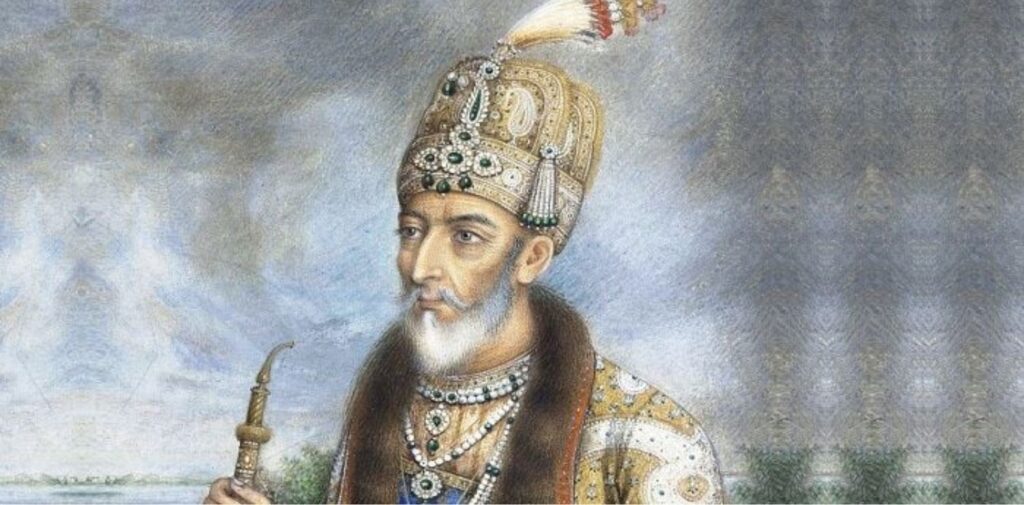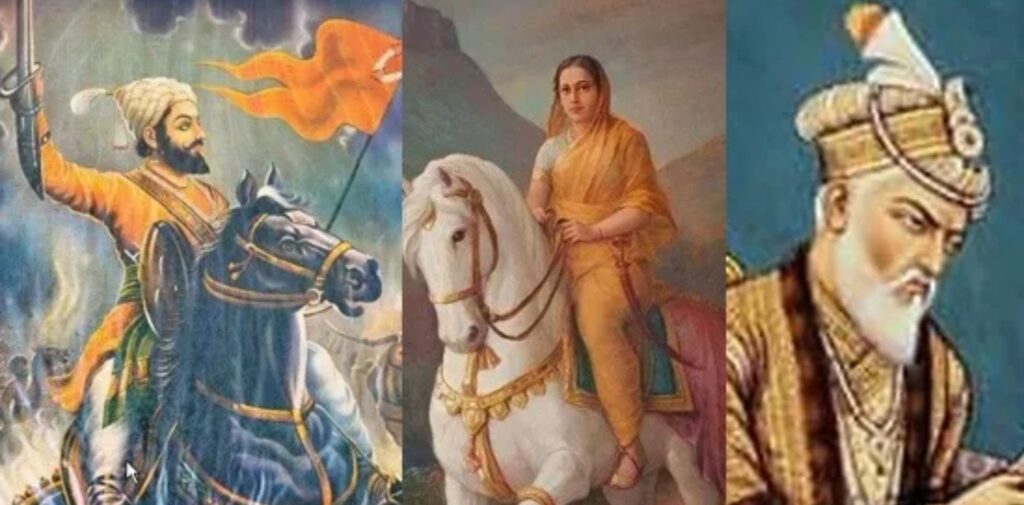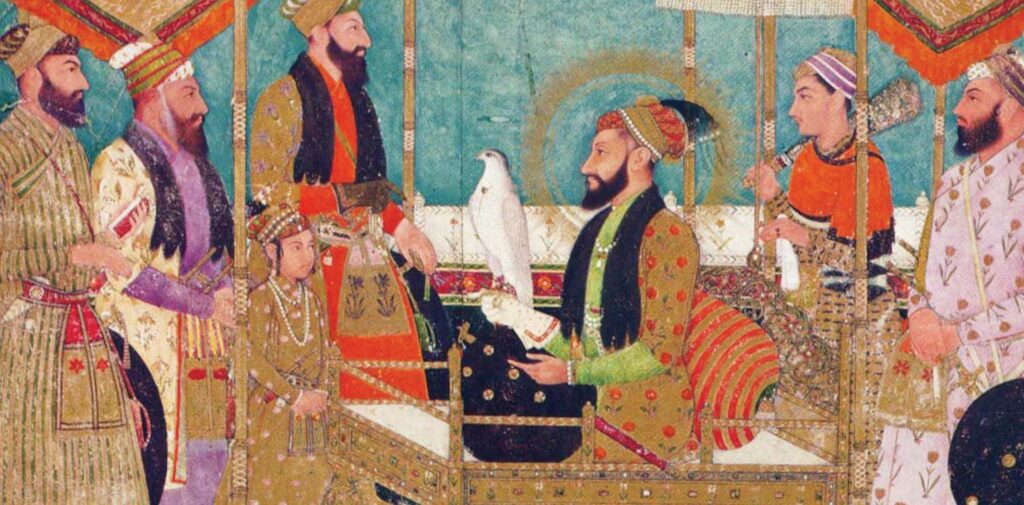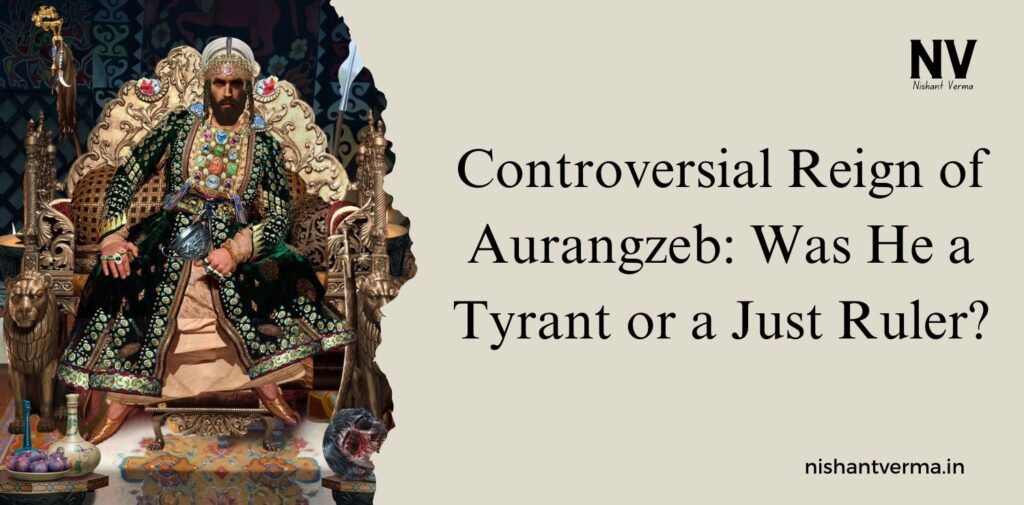Aurangzeb, the sixth Mughal emperor, reigned from 1658 to 1707 and remains one of the most controversial figures in Indian history. His reign was marked by military conquests, religious policies, and administrative changes that have sparked debates for centuries. Some view him as a tyrant who imposed oppressive policies, while others see him as a ruler who upheld justice and worked to maintain the integrity of the Mughal Empire. In this article, we will explore the different facets of Reign of Aurangzeb rule and try to answer the question: Was he a tyrant or a just ruler?
Early Life and Ascension to the Throne
Aurangzeb was born in 1618 to Emperor Shah Jahan and Empress Mumtaz Mahal. He was well-educated and trained in both military tactics and administrative skills. As a prince, Aurangzeb was known for his discipline and devotion to Islam, which set him apart from his more liberal-minded father, Shah Jahan.
Aurangzeb’s path to the throne was not smooth. He had to fight a bloody war of succession against his brothers, particularly Dara Shikoh, who was his elder brother and the heir apparent. In the battle for the throne, Aurangzeb defeated Dara, captured him, and eventually executed him in 1659. This brutal rise to power is one of the first aspects of Aurangzeb’s rule that gives rise to the image of him as a ruthless leader.

Religious Policies: A Tyrant or a Defender of Faith?
Aurangzeb’s religious policies are perhaps the most debated aspect of his reign. Unlike his predecessors, who followed a relatively tolerant approach to different religions, Aurangzeb was a devout Muslim who believed in enforcing Islamic principles across his empire. Some of his policies, such as the re-imposition of the jizya tax on non-Muslims and the destruction of Hindu temples, have led many to label him as a religious tyrant.
Imposition of Jizya Tax
One of the most controversial measures Aurangzeb took was the re-imposition of the jizya tax in 1679. This tax had been abolished by his great-grandfather, Akbar, who followed a policy of religious tolerance, especially towards Hindus. However, Aurangzeb saw the jizya as an important symbol of Muslim supremacy and reintroduced it to assert Islamic rule over the empire. The jizya was a tax levied on non-Muslims, particularly Hindus, and it angered many sections of the population. It led to widespread resentment, particularly in the provinces where Hindus formed the majority.
Destruction of Temples
Aurangzeb is also criticized for his policy towards Hindu temples. He ordered the destruction of several important temples, including the famous Kashi Vishwanath Temple in Varanasi and the Somnath Temple in Gujarat. He justified these actions by claiming that they were necessary to maintain Islamic law and suppress idol worship. However, these actions have been widely condemned as symbols of intolerance and religious persecution.
Despite these policies, Aurangzeb’s reign was not entirely devoid of tolerance. While he did destroy some temples, he also constructed several mosques and madrasas (Islamic schools). He did not completely outlaw Hindu practices, and in some cases, he promoted Hindus to high administrative positions in his empire, such as the Maratha general, Jivaji, and his close associate, Raja Jai Singh of Amber.
Patronage of Islamic Learning
Aurangzeb also focused on promoting Islamic education. He established madrasas, supported the compilation of Islamic texts, and sponsored religious scholars. His commitment to Islamic orthodoxy was evident in his patronage of scholars like Shah Waliullah Dehlawi, who was a great theologian of the time. This focus on Islamic learning strengthened his position as a devout ruler, but it also alienated many of his non-Muslim subjects.

Military Campaigns and Expansion
Aurangzeb’s military campaigns are another aspect of his reign that contributed to his controversial reputation. Under his rule, the Mughal Empire reached its greatest territorial extent, but at a great cost. Aurangzeb focused much of his energy on military expansion, particularly in the south.
- War Against the Marathas: One of the most significant military conflicts during Aurangzeb’s reign was his prolonged war against the Marathas, led by the formidable Shivaji. Initially, the relationship between Aurangzeb and Shivaji was diplomatic, but after Shivaji’s death in 1680, Aurangzeb pursued the Marathas relentlessly. The conflict stretched over several decades and drained the resources of the Mughal Empire. Despite his military superiority, Aurangzeb was never able to fully subdue the Marathas. This long war had lasting consequences, weakening the Mughal Empire and contributing to its eventual decline.
- Deccan Campaign: Aurangzeb also focused his efforts on the Deccan region, where he sought to expand the empire by defeating the Maratha, Deccan Sultanates, and other local kingdoms. His extended campaign in the Deccan, which lasted for several decades, was a major drain on the Mughal resources. The prolonged warfare led to heavy casualties and economic strain, which weakened the empire’s ability to maintain its control over distant territories.
Administrative and Economic Policies
Aurangzeb’s rule was characterized by several administrative reforms aimed at tightening control over the vast Mughal Empire. He sought to curb corruption, reduce lavish spending at court, and focus on the welfare of the state.
- Administration: Aurangzeb was known for his strict and austere personal lifestyle. Unlike his predecessors, who were known for their lavish courts and patronage of arts and culture, Aurangzeb was a devout ruler who focused on governance and discipline. He promoted honesty and integrity in the administration and appointed officials based on merit rather than loyalty or family connections.
- Economic Policies: Aurangzeb’s policies towards taxation were also aimed at maximizing revenue. He continued the Mughal practice of taxing agricultural production, which helped sustain the empire’s vast bureaucracy and military. However, these taxes were often burdensome for peasants and farmers, especially in times of famine or drought. His emphasis on fiscal conservatism led to reduced funding for cultural and architectural projects, in contrast to his predecessors, who built grand structures like the Taj Mahal and Red Fort.

The Legacy of Aurangzeb: Tyrant or Just Ruler?
Aurangzeb’s reign remains a topic of debate among historians and scholars. There are arguments both in favor and against his legacy.
Arguments for Aurangzeb as a Tyrant
- Religious Intolerance: His strict religious policies, such as the imposition of the jizya tax and the destruction of Hindu temples, have led many to label him as a tyrant. These policies created divisions between Hindus and Muslims and alienated large sections of the population.
- Brutal Military Campaigns: The prolonged wars, particularly against the Marathas, drained the empire’s resources and led to widespread suffering. His military aggression is seen by some as a sign of tyrannical ambition.
- Autocracy: Aurangzeb’s autocratic style of rule and his centralization of power further contributed to his negative image. His refusal to delegate power to trusted officials or collaborate with regional rulers weakened the Mughal Empire in the long run.
Arguments for Aurangzeb as a Just Ruler
- Economic and Administrative Reforms: Despite his autocratic rule, Aurangzeb implemented several important reforms, such as curbing corruption and promoting merit-based administration. He was also concerned about the welfare of his empire and sought to improve governance.
- Religious Devotion: Some argue that Aurangzeb’s policies were driven by his deep religious devotion rather than personal ambition. He believed that enforcing Islamic law was his duty as a ruler and was not solely motivated by tyranny.
- Maintaining the Mughal Empire: Aurangzeb’s military campaigns, while harsh, were aimed at preserving the integrity of the Mughal Empire. His long reign was marked by efforts to maintain the empire’s territorial boundaries and expand its influence, even at great personal cost.
Conclusion: Reign of Aurangzeb
The legacy of Aurangzeb is complex and multifaceted. While his policies towards religion, military conquest, and administration have led to a mixed reputation, it is clear that he was a ruler who sought to uphold his vision of Islamic law and maintain the strength of the Mughal Empire. Whether he was a tyrant or a just ruler depends on one’s perspective. For some, his religious intolerance and brutal military campaigns make him a tyrant, while for others, his commitment to governance and his austere lifestyle reflect his dedication to the empire and its ideals.
Ultimately, Aurangzeb’s reign highlights the complexity of leadership in a vast, diverse empire like the Mughal Empire, where the balance between personal beliefs, political power, and the welfare of the state was constantly in flux.




